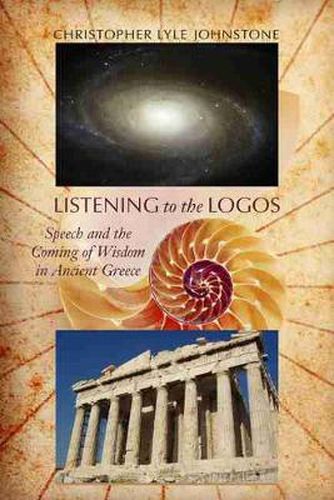Readings Newsletter
Become a Readings Member to make your shopping experience even easier.
Sign in or sign up for free!
You’re not far away from qualifying for FREE standard shipping within Australia
You’ve qualified for FREE standard shipping within Australia
The cart is loading…






This book offers an exploration of the role of language arts in forming and expressing wisdom from Homer to Aristotle. In
Listening to the Logos , Christopher Lyle Johnstone provides an unprecedented comprehensive account of the relationship between speech and wisdom across almost four centuries of evolving ancient Greek thought and teachings. Johnstone grounds his study in the cultural, conceptual, and linguistic milieu of archaic and classical Greece, which nurtured new ways of thinking about and investigating the world. He focuses on accounts of logos and wisdom in the surviving writings and teachings of Homer and Hesiod, the Presocratics, the Sophists and Socrates, Isocrates and Plato, and Aristotle. Specifically Johnstone highlights the importance of language arts in both speculative inquiry and practical judgment, a nexus that presages connections between philosophy and rhetoric that persist still. His study investigates concepts and concerns key to the speaker’s art from the outset: wisdom, truth, knowledge, belief, prudence, justice, and reason. Johnstone’s interdisciplinary account ably demonstrates that in the ancient world it was both the content and form of speech that most directly inspired, awakened, and deepened the insights comprehended under the notion of wisdom.
$9.00 standard shipping within Australia
FREE standard shipping within Australia for orders over $100.00
Express & International shipping calculated at checkout
This book offers an exploration of the role of language arts in forming and expressing wisdom from Homer to Aristotle. In
Listening to the Logos , Christopher Lyle Johnstone provides an unprecedented comprehensive account of the relationship between speech and wisdom across almost four centuries of evolving ancient Greek thought and teachings. Johnstone grounds his study in the cultural, conceptual, and linguistic milieu of archaic and classical Greece, which nurtured new ways of thinking about and investigating the world. He focuses on accounts of logos and wisdom in the surviving writings and teachings of Homer and Hesiod, the Presocratics, the Sophists and Socrates, Isocrates and Plato, and Aristotle. Specifically Johnstone highlights the importance of language arts in both speculative inquiry and practical judgment, a nexus that presages connections between philosophy and rhetoric that persist still. His study investigates concepts and concerns key to the speaker’s art from the outset: wisdom, truth, knowledge, belief, prudence, justice, and reason. Johnstone’s interdisciplinary account ably demonstrates that in the ancient world it was both the content and form of speech that most directly inspired, awakened, and deepened the insights comprehended under the notion of wisdom.